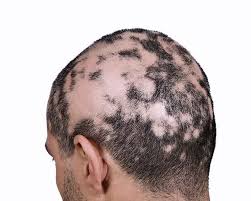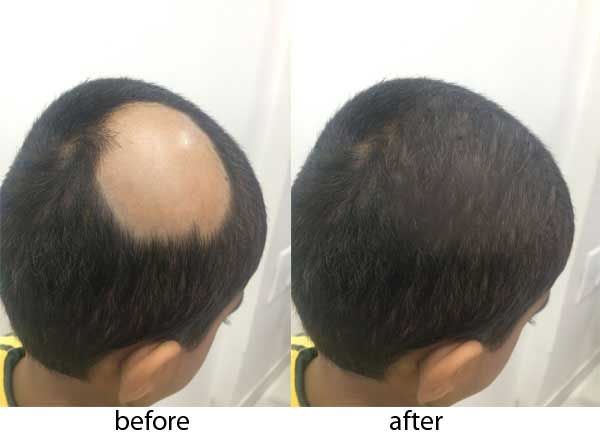

Herein, we report a case of AU successfully treated with tofacitinib. The serum cytokine level of IFN-γ is also significantly increased ( 5), suggesting that JAK inhibitors can be a potentially beneficial choice for AU patients due to JAK inhibitors interfering with the JAK-STAT signaling pathway and inhibiting IFN-γ.
ALOPECIA AREATA UNIVERSALIS TREATMENT ACTIVATOR
Meanwhile, phospho-signal transducer and activator of transcription (pSTAT)3/STAT1 is also upregulated ( 3, 4). Gene expression of inflammatory markers (interleukin -2, Janus kinase 3, and IL-15), T helper type (Th) 1 pathway cytokines (interferon -γ), and Th2 pathway cytokines (IL-13) increase in the lesional scalp of alopecia areata (AA) patients. The exact etiopathogenesis is unclear, but the collapse of the immune system and autoimmune attack of hair follicles induced by CD8+ T cells are believed to be the leading causes of AU ( 2). AU’s treatment options are usually unsatisfactory, and no specific effective therapies are available ( 1). However, this beneficial response in the patient was accompanied by a remarkable increase in peripheral blood cytokine levels during tofacitinib treatment.Īlopecia universalis (AU) is an autoimmune disorder characterized by non-scarring hair loss in the scalp, eyebrows, and beard, potentially resulting in complete hair loss all over the body.

Furthermore, the upregulation of Janus kinase (JAK)3 and phospho-signal transducer and activator of transcription (pSTAT)3/STAT1 in alopecia areata patients suggest that JAK inhibitors can be a potentially promising choice for AU patients for the reason that JAK inhibitors can interfere with JAK-STAT signaling pathways and inhibit IFN-γ. Additionally, interferon (IFN)-γ plays an important role in triggering the collapse of hair follicle immune privilege and impairing hair follicle stem cells. The autoimmune attacks of hair follicles induced by CD8+ T cells and the collapse of hair follicle immune privilege are believed to be the leading causes of AU. Available treatments are usually unsatisfactory. Department of Dermatology, Henan Provincial People’s Hospital, Zhengzhou University People’s Hospital, Henan University People’s Hospital, Zhengzhou, ChinaĪlopecia universalis (AU) is an autoimmune disorder characterized by non-scarring hair loss in the scalp, eyebrows, beard, and nearly the entire body, negatively affecting patient prognosis.Ling Yu †, Huiqian Yu *†, Shuai Zhang, Yanzhao Hao and Shoumin Zhang


 0 kommentar(er)
0 kommentar(er)
